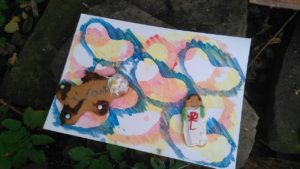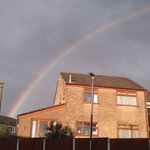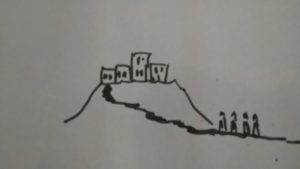There are many kinds of silence in our churches. In some you will encounter reverent and prayerful silence but in too many you will encounter oppressive silences concerned with things we can’t say or talk about. This also happens in the councils of the church, like Synods and the other layers of meetings which can clutter up our life together, but in certain smaller denominations these rarely make headlines.
So as one of the gender previously exhorted to keep silent in the churches, I find myself once again giving voice. Of course, this is not all that surprising as one who’s primary vocation is as a speech therapist because that lies at the very centre of who I am.
In the end it was that fundamental aspect of my identity that I relied on the guide me away from the harmful practices of my local Synod. Others, including those still inside it would tell this story differently. I can only tell it myself.
I have just completed my first half term of ministry outside and already feel lighter. I didn’t expect to become the Chaplain of Silcoates School and I certainly didn’t expect to be still doing it 7 years after beginning in a temporary role. But I have stayed, now outside the Synod, to share to Gospel there and listen to God’s call to us all.
As a school affiliated to the United Reformed Church it began life as the Northern Congregational School nearly 200 years ago when faith and education in the same sentence was not such contentious ground. Now, with 6 such schools, and independent education a hot bed for debate, it’s clear that most local dissenters don’t know what to do with us.
‘It wasn’t fair’ for the school to have one of the Synod ministers for any longer than 5 years, was one comment recorded in the Synod minutes when the decision to cease its involvement in the school Chaplaincy was announced. The argument goes we, in the proper churches, have to share ministers, and therefore one whole minister only doing Chaplaincy to 600 or more children and their families was clearly profligate in the extreme. Besides which ‘no other Synods do it like this’ according to the final review report. It was just one example of Synod members demonstrating their lack of awareness of the central message of the Gospel. They seemed unaware of God’s profligate love. They don’t seem to realise there are many ways of being church.
Well all this, however painful to live through and even recall now, is history. Indeed at the time it didn’t surprise me. But I didn’t predict how profoundly it would effect my sense of identity.
Having grown up in the United Reformed Church I find myself drifting further and further from what it now is. Are we not called to be profligate too? To give away our gifts and resources to further the Gospel call to ‘tell everyone’?
We seems to be content to swap this for some kind of partitioning that has bits of ministry scattered here and there, some time 70/30% split, sometimes 66/34% split, presumably depending on the mathematics of any particular Synod (the significance of the 4% of ministry still eludes me). The result is not better leadership just more squabbling about ‘our share’ and more knackered ministers who it seems fear to voice their own reservations or more to the point, vision.
Well enough is enough. I do remember and restate the call to ministry I received: Christ’s is the world in which we move, Christ’s are the folks we’re summonsed to love.
I was 18 months into my first speech therapy post when I was invited to speak to a group of parents of children with learning difficulties, as the local service had proved unwilling to respond to the request. I sat down and the Chair invited questions. The Manger of the local service rised to accuse me: ‘You would give all our skills away, you would’. Guilty as charged. I would, I continue to do so and I would again.
Only now I say we should give all our ministry away. No more tiny shares for this church or that in ever expanding geographical challenges. Only a whole lot of ministry in any one place for a vision, a light house, to be built or a new thing pioneered. If there’s no sign of vision and all folks want is maintenance until death they can arrange that for themselves. Harsh maybe but also generous. Give it away and see what comes back.
If we continue with our present piecemeal plans we are fast running out of life. Too many exhausted people running dysfunctional Sunday clubs (it seems few will actually vote to close theirs however unsustainable it has become).
A new thing is required, not just for our churches, but of any who want a more outward looking faith that actually engages with people where they are now.
Back in the so called Dark Ages, Columba sent Aidan to Lindisfarne to Christianise the North of England. When they got there, they found a faint echo of the faith left behind by Paulinus and earlier pioneers. They were not Chritianising the North, they were re-christianising it. The local people welcomed the monks who had come to be with them, to create community, not foist unjust taxes on them.
So to our task, the echo is still just about there. But it will not have much effect if all it does is echo around the insides of the tombs we have created. It is time not to keep silent in the churches.
‘Leave the tomb, it is empty. He has gone before you’.
On a train…
I wrote this on a train. In the seat in front of me a young child exhorts her mother to ‘more bubbles’. Yes please, Let’s have more bubbles: more bubbles of enthusiasm, of joy, more bubbles of colour and light. More bubbles to float our concerns for the world, to take our sins and short comings far from us, more bubbles of leadership from the youngest among us. Of course I’m a speech therapist, I’d spend my last breath on bubbles. Better than on the unhealthy, cold, closed in silences of churches and Synods that don’t know a light house when they see one.
In our life and our believing
The love of God


